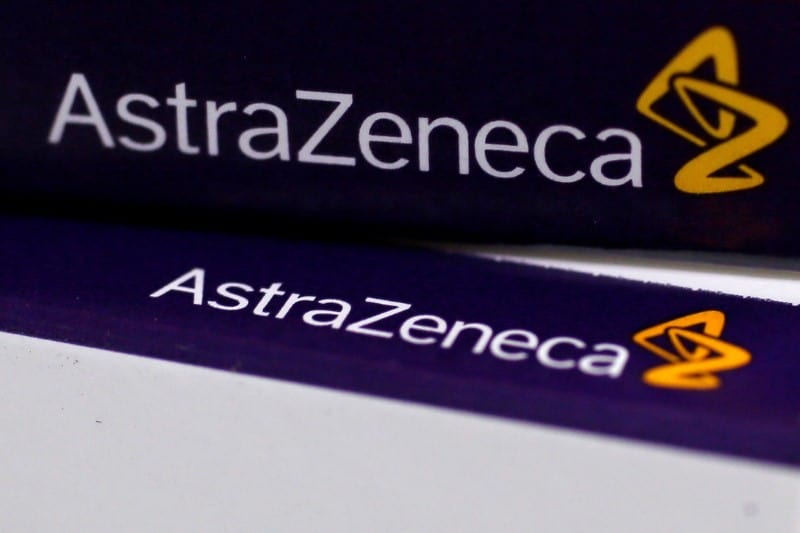LONDON (Reuters) – AstraZeneca’s immunotherapy drug Imfinzi has hit a second important goal by improving overall survival in lung cancer patients, boosting prospects for a medicine that has already got off to a promising commercial launch.
Its success in extending lives, announced by the company on Friday, follows data announced last year showing patients on Imfinzi lived on average 16.8 months without their disease worsening, against just 5.6 months for those on placebo.
That so-called progression-free survival (PFS) benefit led to U.S. regulatory approval in February, allowing Imfinzi to be used in non-small cell lung cancer patients with inoperable mid-stage disease that has not spread widely around the body.
Imfinzi is the first immunotherapy to be approved in this setting, giving AstraZeneca a chance to intervene relatively early in lung cancer.
That distinguishes it from rivals Merck, Bristol-Myers Squibb and Roche that beat the British drugmaker in winning approval for similar immunotherapies in advanced or metastatic disease.
Analysts believe using Imfinzi in stage III lung cancer, where cancer has only spread locally, opens up a multibillion-dollar sales opportunity and the latest overall survival (OS) data should underline the drug’s potential.
“Consensus has peak Imfinzi sales at $2.8 billion by 2023 and the achievement of an OS benefit may not result in much of a change in sales expectations,” Berenberg analysts said in a note.
“Nevertheless … the OS data will help Astra in its physician education and ensure the peak sales can be achieved.”
AstraZeneca said it planned to publish full details of the statistically significant OS result at an upcoming medical conference.
Imfinzi, chemically known as durvalumab, belongs to a new class of immuno-oncology drugs that block a mechanism tumors use to evade detection from the immune system.
Lung cancer is the biggest opportunity for all companies seeking to exploit the power of such medicines, since it is the leading cause of cancer deaths.
(Reporting by Ben Hirschler; Editing by Keith Weir)



